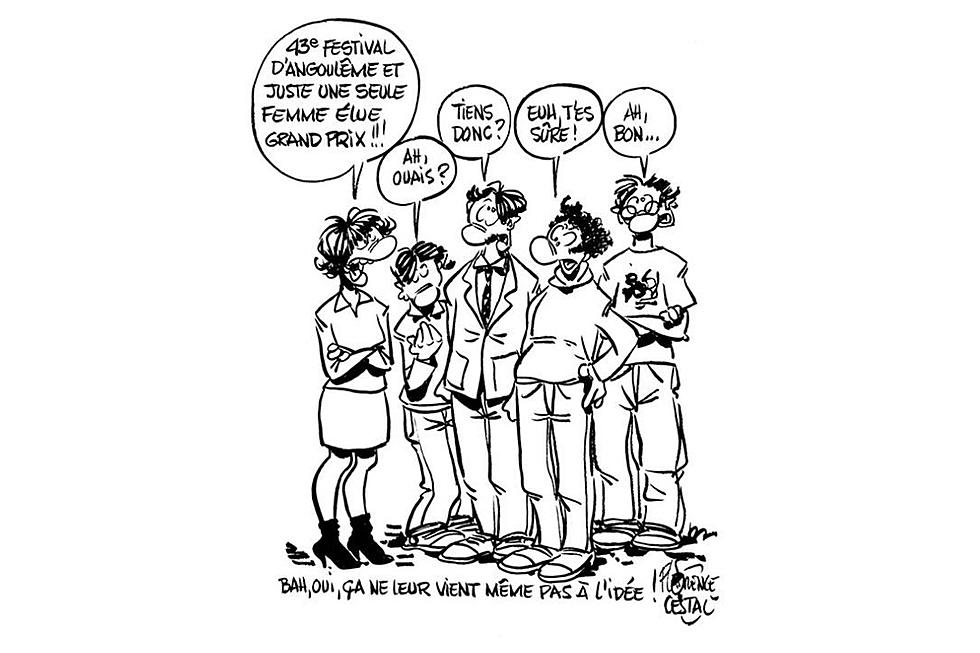
The Evolution of Daniel Clowes
Born April 14 1961, Daniel Clowes is one of the most respected and influential cartoonists of the modern era, and there's probably nobody who hates that fact more than Dan Clowes. Known primarily for his long-running alt-comic Eightball, the Chicago-born artist has been praised and awarded regularly since the late 1980s, which is especially impressive considering that he didn't reach his full creative potential until much, much later.
Daniel Clowes attended the Pratt Institute and received his BFA in 1984, but by then he had already entered the comics world through independent publisher Look Mom Comics in 1981, with his contribution to the aptly-titled Psycho. He followed that up with more stories in small-press anthology titles, submitted to Fantagraphics editor Gary Groth, and in 1985 his first "Lloyd Llewellyn" story appeared in Los Bros. Hernandez's Love & Rockets #13.
While regularly contributing to Mad magazine knock-off Cracked under the particularly Clowes-ian pseudonym "Stosh Gillespie," the six-issue Lloyd Llewellyn was published by Fantagraphics. Initially a humorous noir parody that was notable mostly for its kitschy style, Lloyd Llewellyn had begun to evolve into something else, delving into spiky social commentary. Though the book was canceled, it paved the way for the title that would become synonymous with Clowes, and for alternative comics, and good-old fashioned outsider rage.
Debuting in 1989, Eightball combined oddball cartooning, classic comics and magazine illustrations, sex, kitsch, gag strips, self-analysis, and pure, caustic vitriol unleashed on the world at large. An anthology title featuring serialized stories, one-off parodies in a variety of styles, autobiography and rants, each issue of Eightall was like seeing Clowes' id, ego, and super-ego splayed out on the page.
Like A Velvet Glove Cast In Iron translated his dreams (dreams being a frequent source of inspiration and analysis for Clowes) into a darkly bizarre journey into sexual perversion; Pussey lampooned every level and segment of the comics industry with unreserved viciousness. In short, odd stories, loners and misanthropes navigated a world of rampant ignorance and crass consumerism. In autobiographical diatribes and skillful pop parodies, Clowes gouged at the grotesqueness of American culture until its eyes were bloody, and always made sure to save a few jabs for his least-favorite subject: himself.
Throughout the '90s, the hodgepodge, one-man Mad magazine continued to evolve. Clowes had always been formally experimental, a prerequisite for the kind of satire Eightball delivered, but as time went on he focused more on content, story, and character. Early Eightball stories were populated with at best archetypes and --- apart from an empathetic anger or frustration --- devoid of any kind of emotional impact.
All of that changed with Ghost World, the most successful comic Clowes created to that point, both commercially and critically. A story about two aimless teenage girls slowly growing apart, the work was seemingly universally praised for its realistic characters and authentic dialogue without losing the odd, spiteful, disappointed worldview of the outsider. Ghost World was adapted into a movie by Crumb director Terry Zwigoff, for which Clowes received an Academy Award nomination for the screenplay. A few years later it was followed by another film, Art School Confidential, loosely based on one of Clowes' most famous diatribes.
In 1999, Clowes abandoned the anthology format in Eightball and began the next phase of his career in earnest with the dark and strangely moving David Boring, an intricate story of film, sexual obsessions, rudderless existence, absent fathers, and the end of the world. He followed that tour-de-force with the final two issues of Eightball, Ice Haven and The Death-Ray, single-issue stories that exhibited his complete formal mastery and continued growth as a storyteller.
Since Eightball closed shop, Clowes has slowly released one great comic after another, typically concerned with misanthropy and outsiderism (still), middle age, love and regret. Mister Wonderful, a twenty-installment comic originally published in The New York Times Magazine, won an Eisner Award (one of the nineteen Eisner or Harvey awards in his possession) for Best Short Story. Wilson, the first of Clowes' comics not to be serialized, is a brilliant collection of single-page gag strips in changing styles that paints a complete picture of a man unable to maintain relationships and connect with the world around him. Partly on the strength of Wilson, Clowes received a PEN Award for "Outstanding Body of Work in Graphic Literature" in 2011. He probably would have been more comfortable if it was for "Cartoons."
In early 2016, Clowes' longest single story, Patience, was released to typically rave reviews. A science fiction story about love, death, deterioration, and our collective obsession with the past, Patience is a true career highlight in a creative output that seems to be continually evolving. Decades after revolutionizing alternative comics, Clowes continues to refine his art, and all of comics --- not just the undergrounds and independents --- is better, richer, weirder, sadder, and more oddly, unpredictably, and grotesquely beautiful because of it.
More From ComicsAlliance









